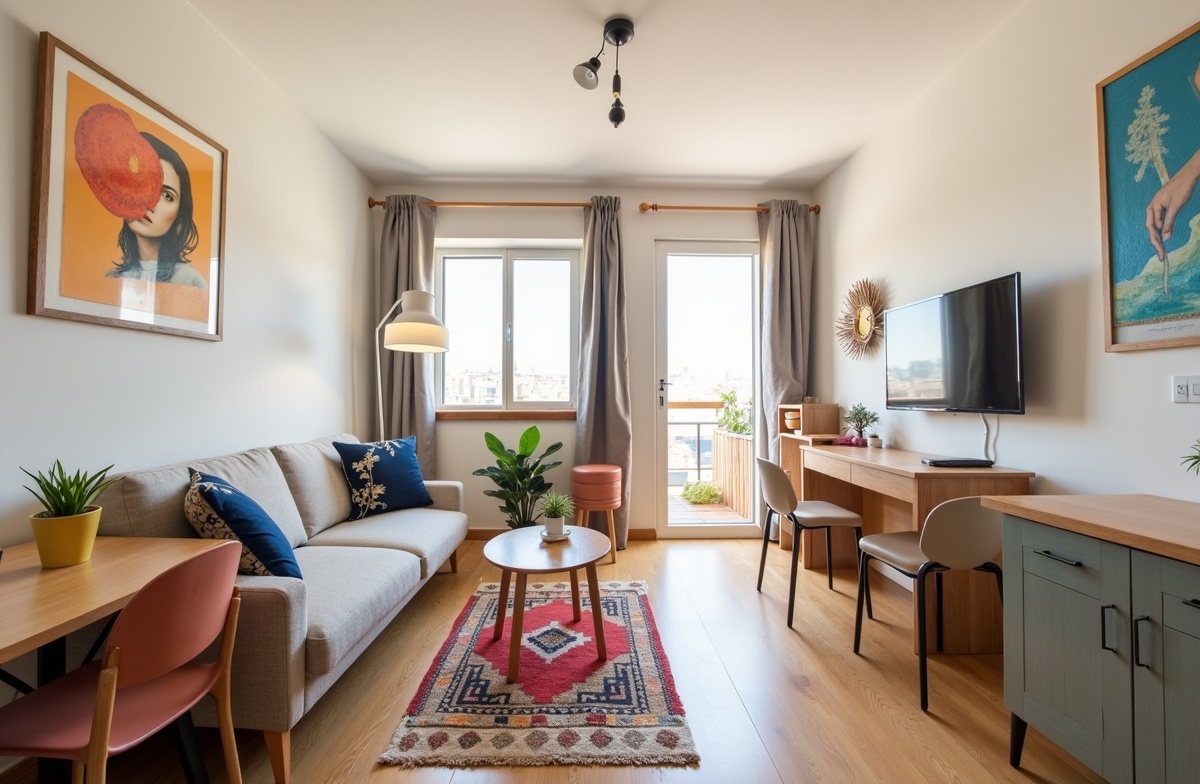Student Housing: How to Save on Room Rent
Reading time: 8 minutes
- Assess your financial situation and rental budget.
- Look for roommates for shared rental.
- Pay attention to transport accessibility and infrastructure.
- Be prepared to negotiate with landlords.
- Post ads in four languages for wider reach.
Article contents:
Budget Planning and Finding Options,
Effective Strategies for Finding Roommates,
Room and Neighborhood Selection Criteria,
Negotiations and Signing the Contract,
Conclusion: Smart Search Leads to Big Savings
Budget Planning and Finding Options
The first and most important step is a realistic assessment of your financial situation. Determine the maximum amount you can allocate monthly for rent, including additional expenses: utilities, internet, and deposit. Study the average prices for rooms in the neighborhoods you’re interested in. Don’t limit yourself to the city center; consider adjacent areas with good transport links. Use specialized sections on our website, such as Real Estate, to get an idea of the market. Here you can filter offers by price, location, and housing type, which saves significant time.
Effective Strategies for Finding Roommates
Renting a room in an already occupied apartment is one of the best ways to save significantly. This allows you to split not only the rent cost but also utility bills. When searching for roommates, it’s extremely important to clearly state your expectations: lifestyle schedule, attitude towards cleanliness, possibility of hosting events. Create a detailed and honest ad about yourself. Specify who you are, what you do, what kind of option you’re looking for, and what budget you have in mind. Post it in the Classifieds section, and thanks to automatic translation, it will be seen by Russian-speaking, English-speaking, Arabic-speaking, and Hebrew-speaking users, which maximizes search speed.
Room and Neighborhood Selection Criteria
When choosing a room, pay attention not only to the price. Critically important factors are transport accessibility (proximity to bus stops and train stations), availability of shops, pharmacies, and other important infrastructure nearby. Assess the condition of the apartment itself: availability of air conditioning, furniture, working plumbing. Don’t hesitate to ask questions about neighbors and the landlord. Personally visit the options you like to form your own impression and avoid fraud. The platform allows you to easily find offers in your desired area, making the search process structured and safe.
Negotiations and Signing the Contract
Found a suitable option? Be prepared to negotiate. In some cases, the landlord may agree to a slightly lower price, especially if you offer to pay the deposit immediately or are ready to sign a long-term contract. All agreements must be clearly recorded in an official rental contract. Read every point carefully before signing. Ensure the document specifies: the exact rent amount, payment date, deposit amount and return conditions, list of landlord and tenant responsibilities. Never transfer money without a signed contract and receipt.
Conclusion: Smart Search Leads to Big Savings
Finding affordable student housing requires thorough planning, active action, and attention to detail. As we’ve discovered, the key to success lies in a realistic budget, smart neighborhood choice, effective use of online platforms, and legal literacy when closing the deal. By posting an ad for a room or roommate on our site, you get a decisive advantage: your request automatically becomes available in the four most common languages of Israel. This erases language barriers, opening access to a huge number of offers and potential candidates, which ultimately helps find the optimal option and significantly save your money.
Frequently Asked Questions
- How to find inexpensive housing in Israel?
- How much money should I save for one month’s rent?
- How to properly negotiate a rental?
To find inexpensive housing, use specialized online platforms, filter offers by price and location, consider the possibility of shared rental.
It is recommended to have at least 20-30% of the maximum rent amount for additional expenses, such as utilities and internet.
Be open and honest, but also clarify all nuances and don’t be afraid to ask for discounts.
